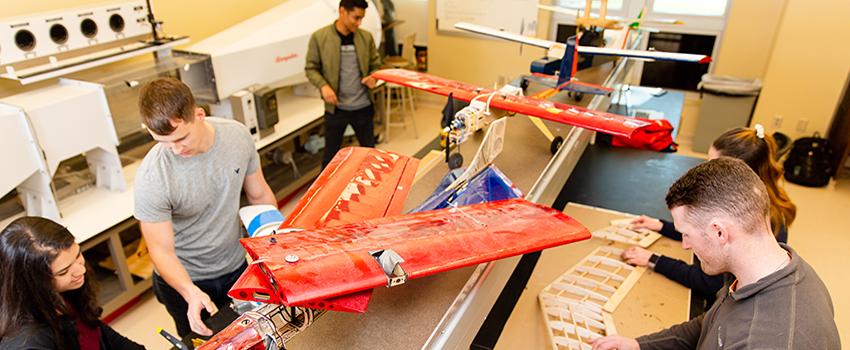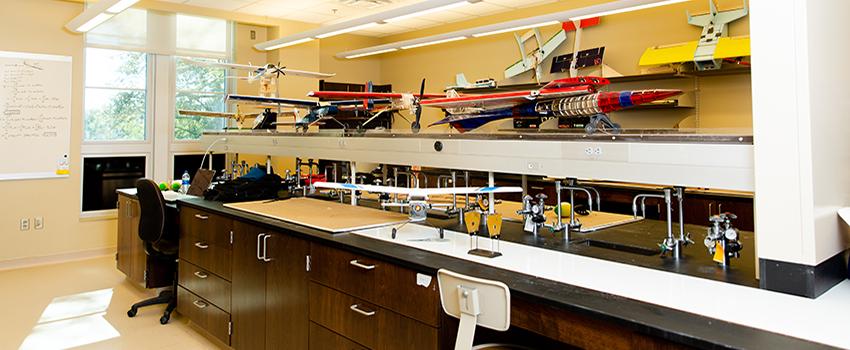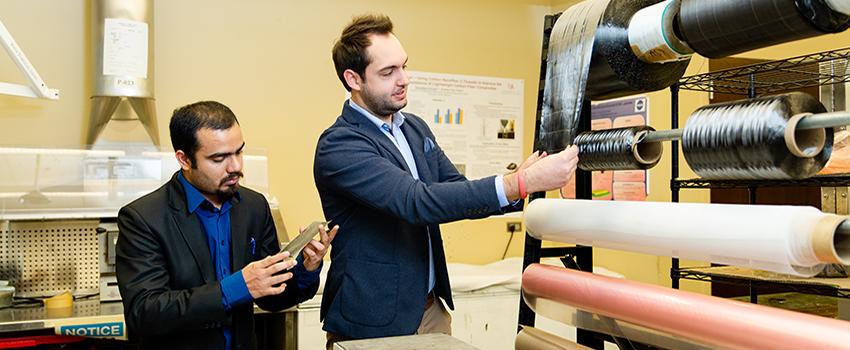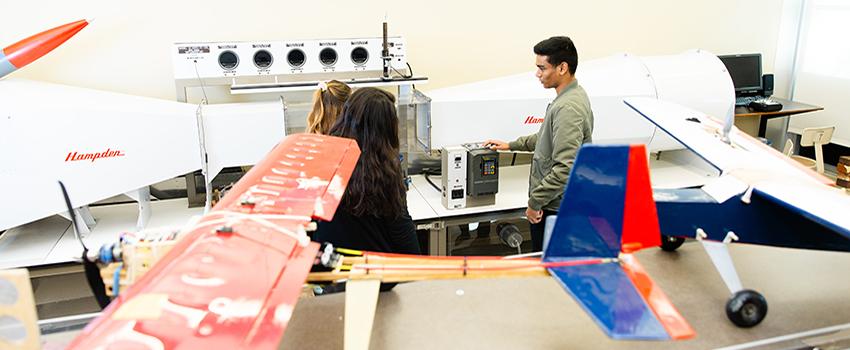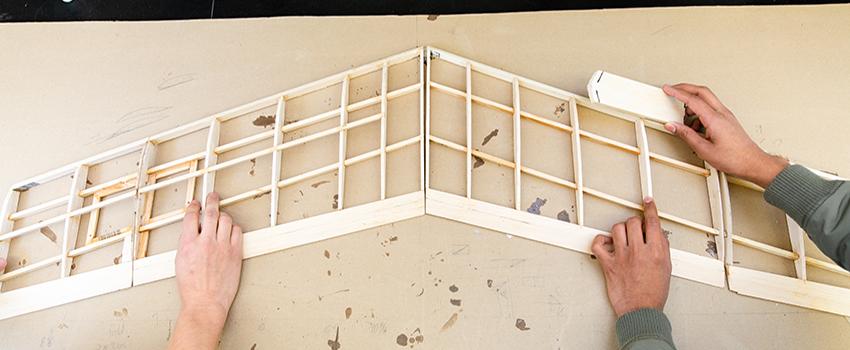William B. Burnsed Jr. Mechanical, Aerospace, and Biomedical Engineering Department (MABE Department)
Mission
The mission of the William B. Burnsed, Jr. Department of Mechanical, Aerospace, and Biomedical Engineering is to provide quality education at both undergraduate and graduate levels, and to create and disseminate knowledge and technology in the fields of mechanical engineering, aerospace engineering, and biomedical engineering.
What do Mechanical Engineers Do?
Mechanical Engineers design and develop machines and systems that move or that convert energy. That involves everything from microscale sensors and actuators to large-scale power plants, automotive engines, and industrial machinery.
Mechanical Engineers are inventors. They work in automotive, aerospace, and marine transportation to invent safer and more efficient ways to move people and things. They develop new energy systems to generate power while reducing carbon emission. They design medical devices that improve health and extend life. Mechanical Engineering is a thrilling and inspiring profession.
Mechanical Engineers are versatile problem-solvers. They design and build devices and systems of all sizes – ranging from nanoparticles for delivering drugs and treating disease, to cutting-edge ocean exploration vessels. They develop new, sustainable sources of energy and inventing safer and more efficient vehicles for land, sea, and air. Mechanical Engineers solve problems to improve peoples’ lives.
What do Aerospace Engineers Do?
Aerospace Engineers design and build aircraft, spacecraft, and related systems. That encompasses everything from the small drones and satellites to the commercial airplanes, military jets, and spacecraft for space exploration.
Aerospace Engineers are innovative problem-solvers. They work in the aviation, defense, and space sectors to innovate technologies for transporting people and cargo efficiently and safely beyond our planet. They design advanced aircraft and spacecraft that shape the future of human mobility and drive global communication and exploration. They develop everything from advanced materials to next-generation satellite and propulsion systems to enhance performance and reduce environmental impact. Aerospace Engineers tackle complex challenges to advance humanity's journey further into space and improve life on Earth. Aerospace Engineering is an exciting and fascinating profession.
The MABE Department offers the Bachelor of Science in Mechanical Engineering (BSME) and the Bachelor of Science in Aerospace Engineering (BSAE). Students also can pursue the Biomedical Engineering track (129 credits total) to prepare for careers in that field.
Requirements for a Degree
Both undergraduate degrees in Mechanical Engineering and Aerospace Engineering require the completion of 126 credits. Prior to graduation, students are required to take the Mechanical-specific (for BSME) or Other Disciplines-specific (for BSAE) Fundamentals of Engineering examination of Alabama or another state. All electives must be approved by the student’s advisor.
- MABE Undergraduate Programs
- Mechanical Engineering Curriculum - University Bulletin
- Aerospace Engineering Curriculum - University Bulletin
For students interested in post-graduate education, the ME Department offers several options for graduate study. A student can earn a Master of Science in Mechanical Engineering (MSME), through either a thesis or non-thesis option. The non-thesis, coursework-only MSME program is particularly geared to graduates who want to pursue a master’s degree part-time.
Faculty in the Department can also advise students studying for a Doctoral degree.



